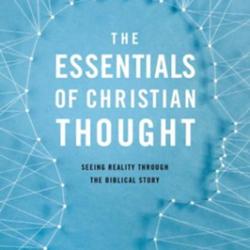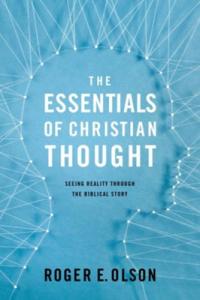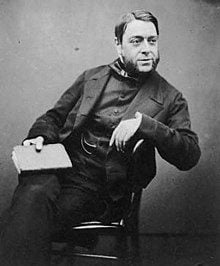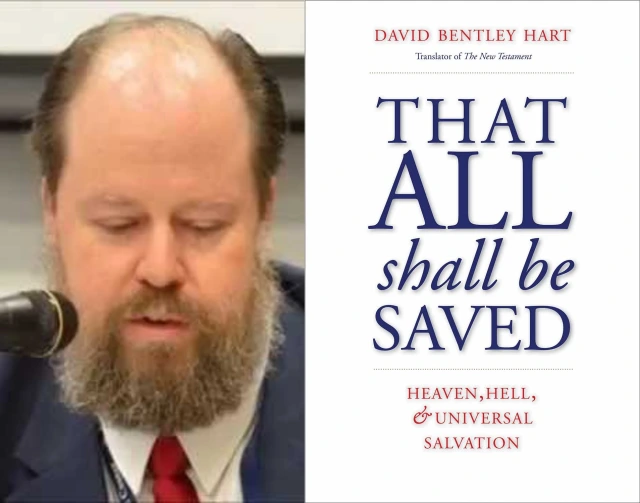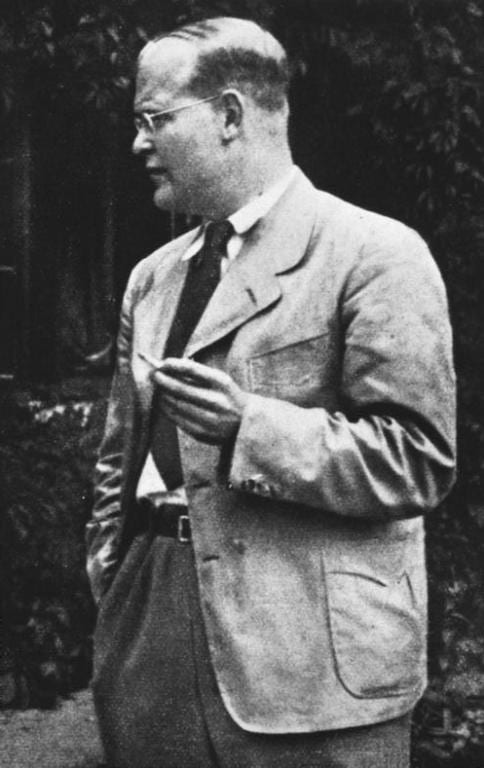Let’s Talk about Compatibilism—Theologically

What is “compatibilism,” you ask? Most simply defined, it is the belief that determinism and free will are compatible. That is, it is possible to believe in both without contradiction. What is “determinism?” Any belief that everything that happens is determined to happen; it could not happen otherwise. Everything happens according to a “blueprint,” as it were, or everything happens according to a natural cause and effect relationship such that nothing is truly contingent.
Now, I know that any philosopher worth her salt could pick apart my definition of determinism, but it would take a book to cover all the details. So here I will just make clear that I am talking about divine determinism—the belief that everything that happens (but especially individuals’ decisions regarding salvation or not) is/are determined by God. Traditional Calvinism, going back to Augustine (how’s that for purposeful anachronism?) teaches that God plans, decrees, and renders certain all that happens without exception. Some divine determinists such as Luther seem to believe God’s determination of individuals’ spiritual decisions, especially regarding repentance and faith, is ad hoc, so to speak. That is, not according to an eternal “blueprint” and detailed decree but according to God’s good pleasure without foreordination.
Most modern Christian divine determinists, especially modern Calvinists, believe divine determinism does not conflict with free will. That is, they are compatibilists. Perhaps the most articulate compatibilist Calvinist was the Puritan preacher and theologian Jonathan Edwards. However, others include Charles Hodge and R. C. Sproul. (Calvin himself may have been a compatibilist, but most of the time he preferred to deny free will altogether.)
Compatibilism “works” (if it works) by defining “free will” as “ability to do what one wants to do” rather than “power of contrary choice.” Again, to avoid objections, I will say that some Calvinist compatibilists claim to believe in power of contrary choice but deny that the power is actual. It is natural but not moral. That is, the sinner, for example, has the natural power to repent, but he does not have the moral power to repent—because of his total depravity resulting from the “fall.”
*Sidebar: The opinions expressed here are my own (or those of the guest writer); I do not speak for any other person, group or organization; nor do I imply that the opinions expressed here reflect those of any other person, group or organization unless I say so specifically. Before commenting read the entire post and the “Note to commenters” at its end.*
Many philosophers such as Richard Swinburne, Peter van Inwagen, William Hasker, and Jerry Walls (to name only Christian thinkers) believe compatibilism “works” only by defining free will away. That is, by defining it such that it is no longer really “free.” According to them, free will is necessarily power of contrary choice—ability to do “this” or “that” without inner or outer compulsion. This is often called “libertarian free will.”
According to most compatibilists, the individual is only free when she is not being coerced; she is free when she is doing what she wants to do even if she could not do otherwise.
According to compatibilists, libertarian free will is incoherent, logically absurd, because it claims that some decisions and actions are not part of any causal chain and are, therefore, effects without causes.
Arminians (including Christians who do not call themselves that) believe in libertarian free will, but contrary to common accusations, do not believe a free decision or action is completely outside of any network of causes and effects. We believe that God gives his human creatures limited, situated freedom, power of contrary choice, to resist or submit to his will. When a sinner repents, for example, he is freely choosing to allow God to work saving grace in him. But this is only possible because of prevenient grace—a subject for another blog post.
So, what, then, is the cause of the repenting sinner’s faith decision? This is especially problematic—to the compatibilist—because it looks like there is no cause of it. The effectual cause, however, of the decision, is the sinner’s own transcendental ego (to borrow a term from Immanuel Kant without agreeing with all that he meant by the phrase). Each individual, as part of the imago dei, the image of God, has an ego, a center of personality, that has the power to decide some things (not everything).
Now, immediately, the compatibilist will predictably jump in and claim that this is still incoherent because it implies a power of personality with God-like abilities that only God can have.
Two responses are appropriate. First, God can give God-like abilities to creatures if he chooses to. That doesn’t make them gods. Second, the admission that God has power of contrary choice (e.g., to create a world or not create a world) proves that libertarian free will is not incoherent—or at least that the Christian determinist (e.g., Calvinist) does not really think so. She may say she thinks so, but by admitting that God has power of contrary choice, libertarian free will, ability to do otherwise, she proves that she does not think compatibilism is logically absurd.
Or does she? A very few Calvinists and others will say that God can do what is to us logically absurd. But they can’t possibly mean that because they always rely on logic to prove false heretical beliefs and teachings about God.
Could God have avoided creating the universe? All Calvinists, all Christian divine determinists, believe in creation out of nothing and that God’s creation of the universe out of nothing was free, not determined. If something internal or external to God caused him to create, then creation is not truly free and then it is not truly gracious. Also, in that case, something of God would be dependent on the world.
But if God has power of contrary choice, then power of contrary choice is not strictly logically absurd.
I had this argument with a well-known, very influential Calvinist theologian-philosopher some time ago. Eventually he admitted that his belief that God’s decision to create was uncaused required him to admit that libertarian free will is not strictly illogical. That does not mean he suddenly believed we humans have it! However, he admitted that one of his main arguments against libertarian free will was thereby undermined.
Finally, compatibilism, within a Christian theological frame of reference, is incompatible with God’s goodness. According to the Christian compatibilist, the Calvinist, for example, a person always decides and acts according to his strongest inclination, motive. But where does his strongest inclination, motive, come from? From his nature, they say. But, ultimately, within their system of thought, everything is planned, decreed, and rendered certain by God—including persons’ inclinations and motives. (See my book Against Calvinism for proof of this from leading Calvinists’ own writings.)
Appeals to secondary causes do not help here. Responsibility always lies with the primary cause. Think of a court case in which a defendant was caused to commit the crime by someone else—through some kind of manipulation. (Quite a few novels and movies have been made featuring such scenarios!) The jury, if not the judge and prosecutor, will want to convict the person(s) who manipulated the defendant to commit the crime. It’s intuitive, instinctive, and logical in a very raw way.
If Christian compatibilism is true, then God is the ultimate cause of sin, lack of repentance, and evil.
*Note to commenters: This blog is not a discussion board; please respond with a question or comment only to me. If you do not share my evangelical Christian perspective (very broadly defined), feel free to ask a question for clarification, but know that this is not a space for debating incommensurate perspectives/worldviews. In any case, know that there is no guarantee that your question or comment will be posted by the moderator or answered by the writer. If you hope for your question or comment to appear here and be answered or responded to, make sure it is civil, respectful, and “on topic.” Do not comment if you have not read the entire post and do not misrepresent what it says. Keep any comment (including questions) to minimal length; do not post essays, sermons or testimonies here. Do not post links to internet sites here. This is a space for expressions of the blogger’s (or guest writers’) opinions and constructive dialogue among evangelical Christians (very broadly defined).




